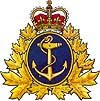
It was some time ago that I wrote an entry into the blog, describing how many of the worse ideas ever conceived, began with someone suddenly exclaiming: "Hey... I know what...". The e-mail we received this morning has that certain air of 'doe-eyed Darwinism' about it, as many 'not-really-well-thought-out-plans' have. The goal is lofty, the proposal ambitious and the reason...? Just to prove a point.
Read on and see if you can spot the possible deficiencies in this planned outing:
February 10, 2010
Canadian Coast Guard
"To Whom It May Concern,
In late May 2010 a group of 9 hikers is embarking on an expedition we are calling '****** ** ******'. In summary, this expedition is based on a paraplegic's goal to prove that her disability is not an inability. Along with ********* ******** (the paraplegic) is her sister (myself), a photographer, a nurse, and 5 other individuals with a wealth of technical training and coastal outdoor experience.
We are currently at the stage of developing an Emergency Response Plan for any situations we may encounter on our trip that are outside our scope of control. There is no cellular service along the trail but we will, of course, be carrying with us a marine radio.
This note is to request the protocol that we should be following given the unique nature of our trip. I assume that there is a Coast Guard Station at Yuquot/Friendly Cove whom we should be contacting upon our departure and return? If so, how can I go about contacting that particular station and what information will they require?
Thank you for taking the time to read my inquiry and I look forward to your response. You can reach me at the email address or phone number supplied below.
Kind Regards,
******* ********."
*********************************
After doing some very cursory research on the Nootka Trail, I found the following highlights:
"This is not a hike for the faint of heart. In good weather, if things go right (and with all your limbs), it is medium difficulty. If you have problems, you are a long way from civilization. You need buy or rent a marine VHF radio in case of emergency.
- hikers have died on the West Coast Trail and they could die on this hike just as easily
- rogue waves and tides pose the greatest hazard
- river crossings can be very dangerous after rain — especially Beano Creek and Tidal Lagoon. Wait until water level drops before crossing.
- slippery footing causes almost everyone to fall multiple times
- few finish this adventure without at least minor injuries
- emergency phone at the William place in Yuquot. He can call in an Air Nootka plane for a small docking fee.
- this is not a good hike for those who have never done a long multi-day trip
- not pristine Canadian wilderness, the coast has been much degraded by logging.
- each year the beaches get more littered — many hikers have called it "filthy"
- you must carry your own pack
- miserably exposed, rain and wind is the norm. You need a good tent and tarp.
- consider wearing water walking shoes instead of hiking boots
- risk of hypothermia
- few pit toilets en route
- bring rope to hang food from trees, away from animals
- most hikers see black bears on this trek (there are no grizzly bears on Vancouver Island)
- many hikers see wolves, as well
- you need to be bear savvy to do this hike"
- rogue waves and tides pose the greatest hazard
- river crossings can be very dangerous after rain — especially Beano Creek and Tidal Lagoon. Wait until water level drops before crossing.
- slippery footing causes almost everyone to fall multiple times
- few finish this adventure without at least minor injuries
- emergency phone at the William place in Yuquot. He can call in an Air Nootka plane for a small docking fee.
- this is not a good hike for those who have never done a long multi-day trip
- not pristine Canadian wilderness, the coast has been much degraded by logging.
- each year the beaches get more littered — many hikers have called it "filthy"
- you must carry your own pack
- miserably exposed, rain and wind is the norm. You need a good tent and tarp.
- consider wearing water walking shoes instead of hiking boots
- risk of hypothermia
- few pit toilets en route
- bring rope to hang food from trees, away from animals
- most hikers see black bears on this trek (there are no grizzly bears on Vancouver Island)
- many hikers see wolves, as well
- you need to be bear savvy to do this hike"
There is probably nothing that starts off the sinister music in the background faster, than a foray into bear country by someone who is disabled in some way. Ever seen the movie "Prophecy"...? (John Frankenheimer, circa 1979). And this is without taking into account all the other variables of such an undertaking. For the rest of her posse, hey... it's no sweat. They don't have to beat the bear, they just have to run a little faster than their handi-capable friend.
Secondly, is this person going to do the trail, or simply be hefted along like so much luggage by her mates? In that case, what's the point??? All you're doing is jeopardizing their safety for the sake of your own vanity and that's just wrong. You can't lay claim to having 'done the trail' either. It's like trailering your bike to an event. If you didn't ride it, you weren't there.
I have done some reading on this young woman and God love her, she really is one to push the envelope. And good for her for doing so. Nobody likes the idea of having limitations imposed on them, physical or otherwise. But you really have to learn to pick your battles.
Taking on nature is not like taking on someone who might feel badly for your condition. Nature is one big, politically incorrect bitch. It doesn't care that you're gimped up, or that you're trying to prove your worth as a human being to the world, or anyone else. (That is actually referred to as 'grandstanding', by the way...). Ma Nature will not take any pity on you whatsoever. It will very coldly and unceremoniously, kick your ass to the curb.
So... owing to the fact that these individuals will probably be traversing the Nootka Trail strictly on land, the Coast Guard will have nothing to do with them per se. The Coast Guard monitors Sail Plans as filed by people who are transiting Canadian waters by boat, yes. But not so much (at all) for hikers. Our office drafted them the following response, to ensure we were on the same page and to verify they had taken all relevant factors into consideration:
"Dear Ms. ********,
Thank you for your e-mail dated 10 February 2010, requesting information on the use of a marine VHF radio for your hiking expedition.
Unfortunately, you have not provided us with enough information to assist you. Does this proposed trek involve time on the water in a boat of any description? Or will the Nootka Trail take you uniquely over land? Does the proposed operator of this marine VHF radio hold a valid Restricted Operator Certificate (Maritime)?
Are any of your hiking party members equipped with a PLB (Personal Locator Beacon) and if so, are these registered with the Canadian Beacon Registry?
Are you looking for information on contacting the Canadian Coast Guard, or perhaps more appropriately a point of contact for local Search and Rescue services in the Pacific Region? Inland SAR services are not provided by the CCG, but rather by the Joint Rescue Coordination Centres across Canada.
Please send us more detailed information in order to help us better identify your needs.
Sincerely,
Us."
















No comments:
Post a Comment